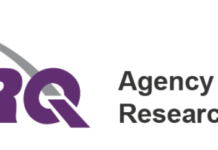Has your team reviewed its policies in regard to resident fund accounts lately? LeadingAge Kansas has had several questions from a number of members recently in regard to this, so we thought we would review the main points and make some suggestions of ideas to manage this important issue.
Residents funds greater than $50 must be deposited in an interest-bearing account separate from the provider’s operating account. Funds from all residents may be commingled in one account, as long as a system is set up to track individual resident balances. Many of the current EMAR programs have the ability to track this for you. Interest earned on balances must be pro-rated to the individual resident account monthly.
One of the most important aspects of resident fund management is providing the resident access to their funds. The regulations state that the resident must have access to $50 in cash within a reasonable period of time, when requested. This can be especially problematic during times when the Business Office is closed. The provider is not required to maintain $50 per resident on the premises, but is expected to maintain amounts of petty cash on hand that may be required by the residents. Many homes will maintain a petty cash box accessible to the charge nurse that can be used during these times. This means the charge nurses need to be trained on how and when to disburse these funds and how to appropriately document it.
Another important facet of resident fund accounting is funds received on the resident’s behalf, such as when you are the payee for a Medicaid resident. If you receive their Social Security or other income monthly, it is a best practice to deposit this in the resident account directly and then pay their patient liability and other bills out of the resident bank account. This provides more transparent accounting records.
Finally, don’t forget that providers are required to report at least quarterly the activity in the resident’s fund to the resident and/or their representative. The more detail the better, and again, many of the current EMAR programs can help with this.
For more in depth review of the regulations, view the State Operations Manual.




